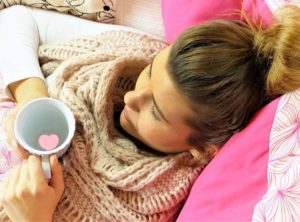Preventative medicine is all about the things that you do or don’t do to keep from getting sick. Research tells us that disease is affected by your diet, lifestyle, environment, your mental outlook, and genetics. With the exception of the genes you inherited, most of these factors are under your control, which means to a large extent, your health is under your control.
I’m trained as a practitioner of Chinese medicine, and I’ve learned that preventative health has been an important part of Chinese medical philosophy since ancient times. They have a saying that if you have a health problem, first treat it with food, and only if that doesn’t work should you turn to acupuncture and herbal medicine.
 So what does preventative medicine mean during these times of Covid 19? During a pandemic you may not think much about preventative medicine, but every time you socially distance or put on a mask, you’re practicing prevention.
So what does preventative medicine mean during these times of Covid 19? During a pandemic you may not think much about preventative medicine, but every time you socially distance or put on a mask, you’re practicing prevention.
The truth is that collectively we have some control over this pandemic. Scientists talk about an R0 value (also called R naught), which is a mathematical term that describes how infectious a disease is. An R0 value of 1 for a disease means that each person who contracts it infects 1 other person. However, an R0 value higher than 1 means that each infected person is passing the illness along to two or more people, which is a huge difference.
Clearly some diseases are more infectious than others. For example, the measles has an R0 value of 12 to 18, meaning each person infects 12 to 18 other people. In contrast, MERS (Middle Eastern Respiratory Syndrome) had an R0 value of less than one, making it not very contagious. Right now Covid 19 has an R0 value of 2 to 3, which means it’s spreading rapidly throughout the population. However, R0 value is a fluctuating number, depending on what we as a population do to control it. And if we can get the R0 value for Covid to 1, it becomes controllable.
Scientists are also puzzled as to why some cities account for a huge portion of deaths worldwide, while other cities with similar characteristics had low death rates. Or while potential super spreader events resulted in few cases while some small gatherings produced a large number of infections. The answer isn’t clear, but researchers talk about a k value, which is a way to describe how this virus is dispersed. What we know now is that Covid has a pattern of clustering, or super spreading behavior. This means that while anyone can spread Covid 19, a small number of people infect a lot of others, but many people with the virus may not infect anyone else. This also means that the way Covid 19 is spread is unpredictable, but focusing on clusters of infections may help scientists understand how to control it.
So knowing that Covid 19 is pretty contagious but with unpredictable dispersion, how do you protect yourself? What can you personally do to keep you and your loved ones safe and help reduce the rate of contagion for this virus?
The first and most important is to avoid scenarios that have the potential to be super spreader events. What happened in the White House rose garden was a super spreader event. Weddings, choir practices, family gatherings, and crowded bars all have the potential to infect a lot of people. In addition, being in small indoor spaces where people are talking, laughing, or singing—in other words dispersing—increase your chances of being infected.
Secondly, wear a freaking mask. The fact that whether or not you wear a mask has become some kind of political statement or a manifestation of your first amendment rights is ridiculous. I mean, don’t we all want this virus under control? Wearing a mask lowers transmission of the virus, lowers dispersion, and lowers the R0 value.
 Also, don’t get too comfortable. It seems that over time we tend to let our guard down. For some, the behaviors that we did to avoid infection in March are long gone. Complacency is spreading this virus, as people think that smallish family gatherings, just one wedding, or a night out with friends is okay—until it’s not.
Also, don’t get too comfortable. It seems that over time we tend to let our guard down. For some, the behaviors that we did to avoid infection in March are long gone. Complacency is spreading this virus, as people think that smallish family gatherings, just one wedding, or a night out with friends is okay—until it’s not.
Personal preventative medicine may also help you avoid getting the virus. Here are some ways to boost your immunity and protect your health:
- Your body repairs itself while you’re asleep, so make sure you’re getting enough. Sleep increases your production of virus fighting T cells. And sleep deprivation actually decreases the production of protective immune cells called cytokines.
- Eat to decrease inflammation. Go easy on sweets, packaged foods, and a lot of meats. Instead, opt for including more plants in your diet; colorful fruits and vegetables, whole grains, nuts and seeds.
- Consider supplementing Vitamin D to support immunity. Our bodies naturally make Vitamin D from exposure to sunshine, but due to a number of factors, most people are deficient in this important nutrient.
- Get some exercise each day. Physical activity increases your circulation, ensuring that immune cells move throughout your body to fight infection where they’re needed.
- Drink plenty of fluids. Being well-hydrated helps lymphatic circulation, a system that also carries immune cells throughout your body.
- Get a handle on your stress. Stress damages your body in countless ways, including decreasing immune function.
The bottom line is that Covid 19 is a big deal. It feels overwhelming and out of control. However, you do have some choices in preventing its spread. You can choose to practice preventative medicine, both personally and communally, as a way to keep you and the people around you healthy.



